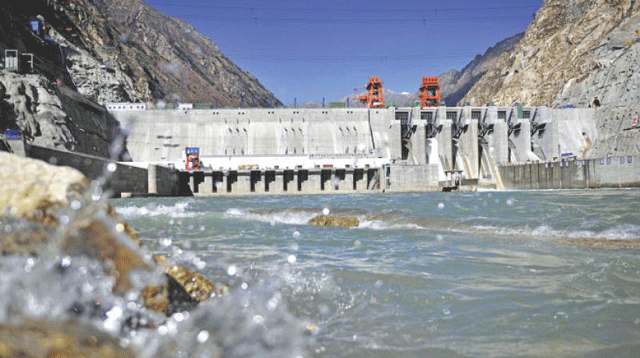The governments of Punjab and Sindh, along with the Water and Power Development Authority (WAPDA), have opposed a proposal by the Khyber Pakhtunkhwa (KP) government demanding an increase of Re. 1 per unit to ensure the timely payment of its dues regarding net hydel profit payments.
According to a news report, the issue was discussed during an inter-provincial meeting chaired by Secretary of Planning, Development, and Special Initiatives, Awais Manzur Sumra.
Himayatullah Khan, Technical Advisor to the KP Government, referenced the 2019 Council of Common Interests (CCI) decision that formed a committee under the Deputy Chairman of the Planning Commission to propose solutions for net hydel profit payments to the entitled provinces.
Under Article 161(2) of the Constitution, the federal government is mandated to pay net hydel profits from hydro-electric stations to the provinces where they are located. The rate is determined by the CCI, but grievances may be referred to a Joint Sitting of Parliament under Article 154(7).
Himayatullah Khan informed the forum that NHP payments began in 1992, followed by a second arrangement in 2016. Another committee, chaired by then-Deputy Chairman Planning Commission Jehanzeb Khan in 2018, calculated NHP amounts of Rs. 128 billion for KP and Rs. 52 billion for Punjab for FY 2016-17 using the KCM formula. The committee’s report was submitted to the CCI in December 2019.
Despite repeated assurances from the CCI that WAPDA’s unbundling would not impact provincial rights, the payment process has faced hurdles. WAPDA is no longer the revenue-collecting agency for the power sector, as CPPA-G has assumed that role on behalf of the federal government.
The KP government presented three proposals to address the issue:
- WAPDA should finance the power components of hydropower projects through the Public Sector Development Programme (PSDP), with revenues generated by WAPDA redirected to NHP payments.
- Transfer ownership of existing WAPDA-owned hydropower plants to the respective provinces, as previously proposed by Punjab.
- Align payments to provinces with constitutional requirements, ensuring consistency in NHP disbursement mechanisms.
The proposals have intensified the debate, with KP asserting its constitutional rights while WAPDA and other provinces remain hesitant to approve significant changes. The longstanding issue tests federal-provincial relations over resource allocation and revenue-sharing mechanisms.
The debate over NHP dates back decades, with a methodology proposed by the AGN Kazi Committee (KCM) in 1986 and later approved by the National Finance Commission in 1988, the Federal Cabinet in 1990, and the CCI in 1991. The Supreme Court validated this methodology in a 1997 judgment, confirming that the CCI had fulfilled its constitutional obligation regarding net profits.




